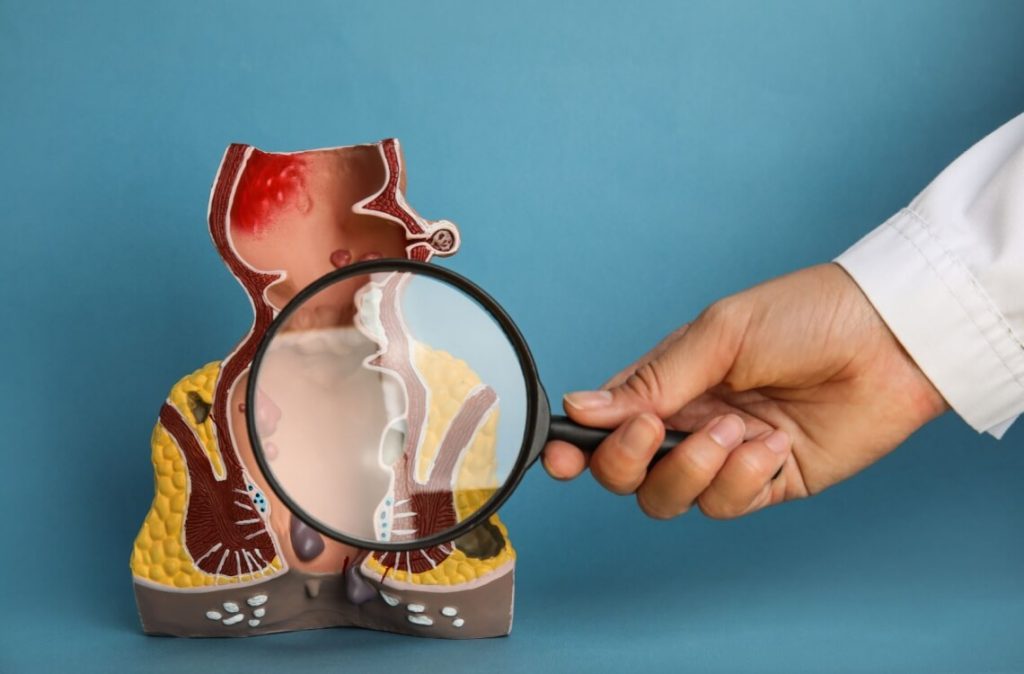Haemorrhoids are one of the more common side effects of pregnancy; they affect a majority of women.
If left untreated, they can be uncomfortable, itchy and sometimes even downright painful.
We had a chat with pharmacist Nazatul Amira Hamzah to learn more about this condition.
Nazatul is a qualified pharmacist with 10 years of experience in pharmacy practice involving both hospital and community settings.
She currently holds the position of Pharmacist and Key Account Manager at Primabumi Sdn. Bhd.
This is her advice on what mums can do about postpartum haemorrhoids.
Q1: What does ‘postpartum haemorrhoids’ mean?
Haemorrhoids, also known as piles, is a painful swelling of a vein in the rectum or in the skin surrounding the anus.
Postpartum haemorrhoids are those that occur close to or right after giving birth and is most common during the third trimester (up 6 to 8 weeks of delivery).
Q2: Are postpartum haemorrhoids common?
Postpartum haemorrhoids are extremely common.
They affect around 40 to 50% of women who have given birth.
Q3: What are the typical symptoms of postpartum hemorrhoids?
Symptoms of postpartum haemorrhoids include:
- a swollen area around the anus
- pain and/or itching after bowel movement
- rectal bleeding (blood in the stool)
Q4: What causes postpartum haemorrhoids?
Postpartum haemorrhoids are caused by:
- the increased pressure that pregnancy and childbirth place on the rectal veins
- constipation during pregnancy
- the increase in the level of progesterone hormone
Progesterone relaxes the walls of your veins, which allows them to swell more easily.
Progesterone also slows down the digestive system, which also leads to constipation.
Q5: What are some safe and effective treatment options for postpartum hemorrhoids?
There are basically 3 main approach to managing postpartum haemorrhoids.
First, treat the constipation. Apart from lifestyle changes, a fibre supplement or a laxative can be helpful to improve your bowel movement.
Next, relieve the pain. If the pain is too unbearable, you can get some relief by taking paracetamol tablets.
Finally, use a haemorrhoid cream or suppository to help ease the symptoms.
Your healthcare professional should be able to advise you on the most appropriate treatment or combination of treatments to help you get rid of the postpartum haemorrhoids.
Q6: Are there any non-medicinal ways of dealing with the symptoms of postpartum haemorrhoids?
Yes, there are.
Here are some great tips you can easily follow:
- Use a Sitz bath (a basin filled with warm water) or a bath to soak yourself in warm water helps hemorrhoids to shrink. Repeat 2 to 4 times a day.
- Apply witch hazel helps to soothe the haemorrhoids. Keep the witch hazel cool in the refrigerator, then apply with cotton balls.
- Avoid straining during a bowel movement since this puts more pressure on your rectal area.
- Use fragrance-free, moistened wipes as they are gentler to the skin than dry toilet paper.
- Apply a clean ice pack or cold compress to relieve pain and swelling. However, before placing it straight to your skin, be sure to wrap it in a towel or piece of fabric.
- To reduce pressure on the rectum, try sitting sit on a pillow or waffle cushion. You may also feel more comfortable sitting in a rocker or recliner instead of a straight chair.
- Avoid standing or sitting for long periods of time.
Q7: How long does it take to recover from postpartum haemorrhoids?
Postpartum hemorrhoids usually resolve within a few weeks to months after childbirth.
Seek medical attention if symptoms persist or worsen.
Q8: Postpartum haemorrhoids sounds like a very unpleasant experience. It makes me feel anxious about having a baby. Is there any way to prevent this issue from happening?
Your concern is perfectly understandable.
However, the discomfort of postpartum haemorrhoids should not prevent you from experiencing the greater joy of being a mother since the symptoms are typically temporary and not serious.
And they good news is, you can easily minimise the risk of postpartum haemorrhoids by preventing constipation or managing it properly during pregnancy if it happens.
You can do that by:
- Eating a high-fibre diet with plenty of fruits, vegetables, whole grains, and beans. You can add fibre into your diet gradually if it makes you feel bloated.
- Drinking plenty of water (six to eight glasses a day).
- Doing light exercises regularly (check with your doctor on the types of exercise that suit you during and after pregnancy).
- Get your doctor’s advice whether you should try a fiber supplement or a laxative to improve your bowel movement.
Q9: Can postpartum hemorrhoids impact the healing process after childbirth? And if so, how can this be managed?
The pain and discomfort may make you reluctant to go to the toilet.
Unfortunately, this will only make the pain of haemorrhoids or your episiotomy wound worse and, as a result, slow down your recovery.
Instead of delaying bowel movement, you should take steps to keep stools soft and regular.
Eating high-fibre foods such as fruits, vegetables, and whole grains and keeping your body well-hydrated will be more helpful.
If you need a stool softener, consult your healthcare professional for advice.
Q10: What are the potential complications associated with untreated postpartum haemorrhoids, and how can they be avoided?
Although uncommon, untreated or inadequately treated postpartum haemorrhoids could lead to the following complications:
- infection
- excessive or prolonged bleeding
- iron deficiency anaemia due to blood loss
- faecal incontinence (the loss of voluntary control over bowel movements)
- anal fistula (a small tunnel that develops between the end of the bowel and the skin near the opening of the anus)
Source: Nazatul Amira Hamzah, Pharmacist at Primabumi Sdn Bhd
Disclaimer: The information provided in this article is for informational purposes only and should not be considered as medical advice from Motherhood. For any health-related concerns, it is advisable to consult with a qualified healthcare professional or medical practitioner.
For more insightful stories and fun recipes, stay tuned to Motherhood Story!
